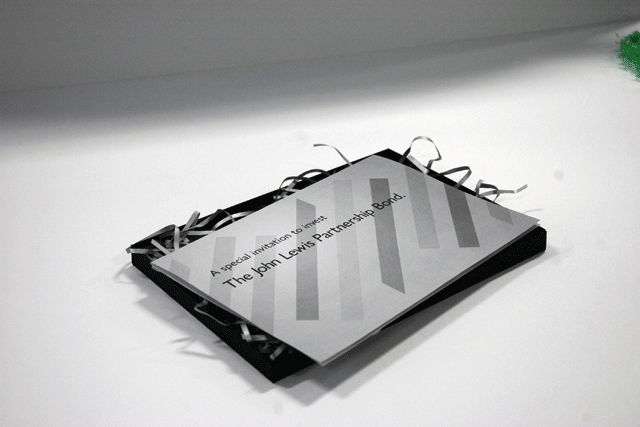
One thing's for sure: trust is bust, and no one is going to sit back and let politicians, financiers or marketers influence them about where and how and what to invest in from now on.
Regardless of the community spirit and national pride that brought the country together during the summer, when it comes to how we spend, save and invest, we Brits have now adopted a deeply independent approach.
Forget ; that encourages people to invest money in an idea they like. This shift is about people choosing to fund an idea because they like an existing brand.
Smart brands are realising that to keep the most loyal consumers coming back, trading up and speaking well of a brand, they eventually need to offer more than a free T-shirt, gig tickets or money-off coupons; they need to offer them equity. Real equity is the new, very personal, tangible and potentially meaningful reward for anyone who owns a stake in the brands they buy.
John Lewis offered 6.5% on its five-year bond, which paid an annual cash return of 4.5% with an extra 2% in John Lewis Partnership vouchers. It reached its investment target of £50m in less than two weeks. Tesco Bank launched a 5% bond in May and received £200m of investor money. Hotel Chocolat offered its 'chocolate bonds', where investments of £2000-£4000 were paid interest in chocolate deliveries, and became a high-street presence.
More interestingly, however, , in the US, has found a way for huge numbers of people to benefit from this shift. It has built a scaled platform to make it inexpensive for a brand to sell - or give away - shares in small increments. Consequently, selling shares at even a small level can build a class of customer-owners who are invested, financially and emotionally, in the brand's success.
This investment model isn't peer-to-peer lending, or crowd-sourcing, but customer-investing, which potentially is more rewarding, for both investor and brand. Perhaps already largely known as the 'social bonds' model, it allows individuals to invest in the brands that already exist, that they already like and use.
So the question is, where once we focused on turning banks into trusted brands, should we now begin treating brands as our trusted banks?
THE UPSHOT
Customer-owner investment models
- Participation is everything
Giffgaff, the SIM-only mobile brand, rewards customers with money and credit for getting highly involved. Issuing shares or bonds as another 'reward' is only a small step beyond this.
- Ownership is everything
Research by Loyal3, a firm that developed a web and social platform for customer stock ownership, shows that customers who are also owners are more loyal and valuable than those who are not.
- Branded bucks
Niche brands are getting in on the act. Boutique hotel-booking brand Mr & Mrs Smith offers a 7.5% rate, but 9.5% for those taking their returns in hotel vouchers, while Leon, the natural fast-food chain, offered buyers of its three-year bond 'pounds eon pounds' to spend in its outlets.
- The evolution of bonds
Social bond schemes can also be applied to charities and non-profit organisations. Westminster Council encourages 'investors' to fund interventions in families in difficulty, so it can offer a complete service to get them back on track. 'Costs avoided' due to these interventions become the benchmark for success and the measured outcome.
Tracey Follows is chief strategy officer at JWT London. Follow her on Twitter:


.jpg)


.jpg)